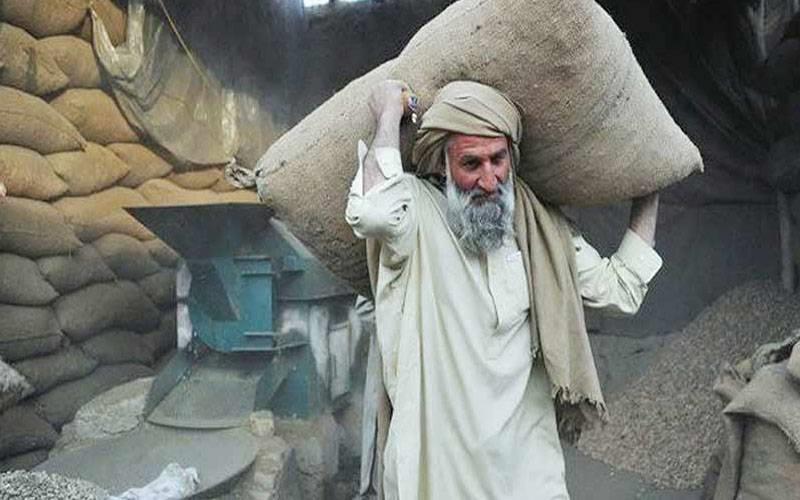KP Raises Minimum Monthly Wage To Rs40,000, But Workers Doubt Implementation
The Khyber Pakhtunkhwa (KP) government's Labour Department has issued a formal notification increasing the minimum monthly wage for workers employed in factories, shops, private hospitals, and other institutions across the province from Rs36,000 to Rs40,000, effective from July 1, 2025.
However, the announcement has sparked widespread concern among workers, who question how the new wage will be enforced when even the previous minimum wage was rarely implemented. Labour representatives and employees across different sectors said that hardly 2 percent of institutions comply with such government directives.
Rozi Khan, a teacher at a private school in Peshawar who has been teaching for four years, said his salary was recently raised to just Rs24,000.“We know we are being deprived of our rights, but we have no choice. Unemployment is so high that if we refuse, someone else will take the job at this pay. The government must develop an effective system to ensure its orders are implemented,” he said.
Also Read: Minority Families in KP Still Await Promised Support 12 Years After Peshawar Church Attack
Similarly, Ahmad Adnan, a driver at one of Peshawar's most prominent schools with 14 branches, said his job requires him to start at 5 a.m. daily, picking up and dropping students from across the city. Despite the long hours, he earns Rs24,000 a month.“The government can issue dozens of notifications, but what good are they if they are never enforced? If the government is serious, it should prove it by implementing its orders,” he remarked.
Alauddin, a security guard outside a commercial centre in Peshawar Cantonment, said he has been paid Rs20,000 a month for the last four years. While he welcomed the provincial government's move to raise wages to Rs40,000, he stressed that the real challenge was implementation.
At Kohat Road Small Industries, labourer Taj Mama said workers there had never received even the previous minimum wage of Rs36,000.“If we complain to the department, the complaint backfires against us. That's why we make do with whatever little we get,” he said.
Labour Department's Response
Deputy Director Labour, Irfanullah, admitted that enforcing the minimum wage is a difficult task.“We don't have the workforce to ensure compliance everywhere. Our authority is limited to inspection and prosecution. During inspections, workers often report the official wage out of fear of losing their jobs, even though they are paid much less in reality,” he said.
He added that the department had proposed payment of wages through bank transfers to improve transparency.“But factory owners and institutions hire legal advisors who guide them. Even when wages are credited to workers' accounts, employers force them to return Rs10,000–15,000 from their salaries.”
Irfanullah also highlighted the slow judicial process.“If a worker lodges a complaint, we take it to the Labour Court, but such cases drag on for years. I still have pending cases from 2021. Despite these hurdles, the government is making efforts to ensure workers get their rightful wages,” he said.

Legal Disclaimer:
MENAFN provides the
information “as is” without warranty of any kind. We do not accept
any responsibility or liability for the accuracy, content, images,
videos, licenses, completeness, legality, or reliability of the information
contained in this article. If you have any complaints or copyright
issues related to this article, kindly contact the provider above.
Most popular stories
Market Research

- Kucoin Partners With Golf Icon Adam Scott As Global Brand Ambassador
- Mediafuse Joins Google For Startups Cloud Program To Scale AI-Driven, Industry-Focused PR Distribution
- Solotto Launches As Solana's First-Ever Community-Powered On-Chain Lottery
- 1Inch Unlocks Access To Tokenized Rwas Via Swap API
- Leverage Shares Launches First 3X Single-Stock Etps On HOOD, HIMS, UNH And Others
- Forex Expo Dubai 2025 Returns October 67 With Exclusive Prize Draw Including Jetour X70 FL






















Comments
No comment